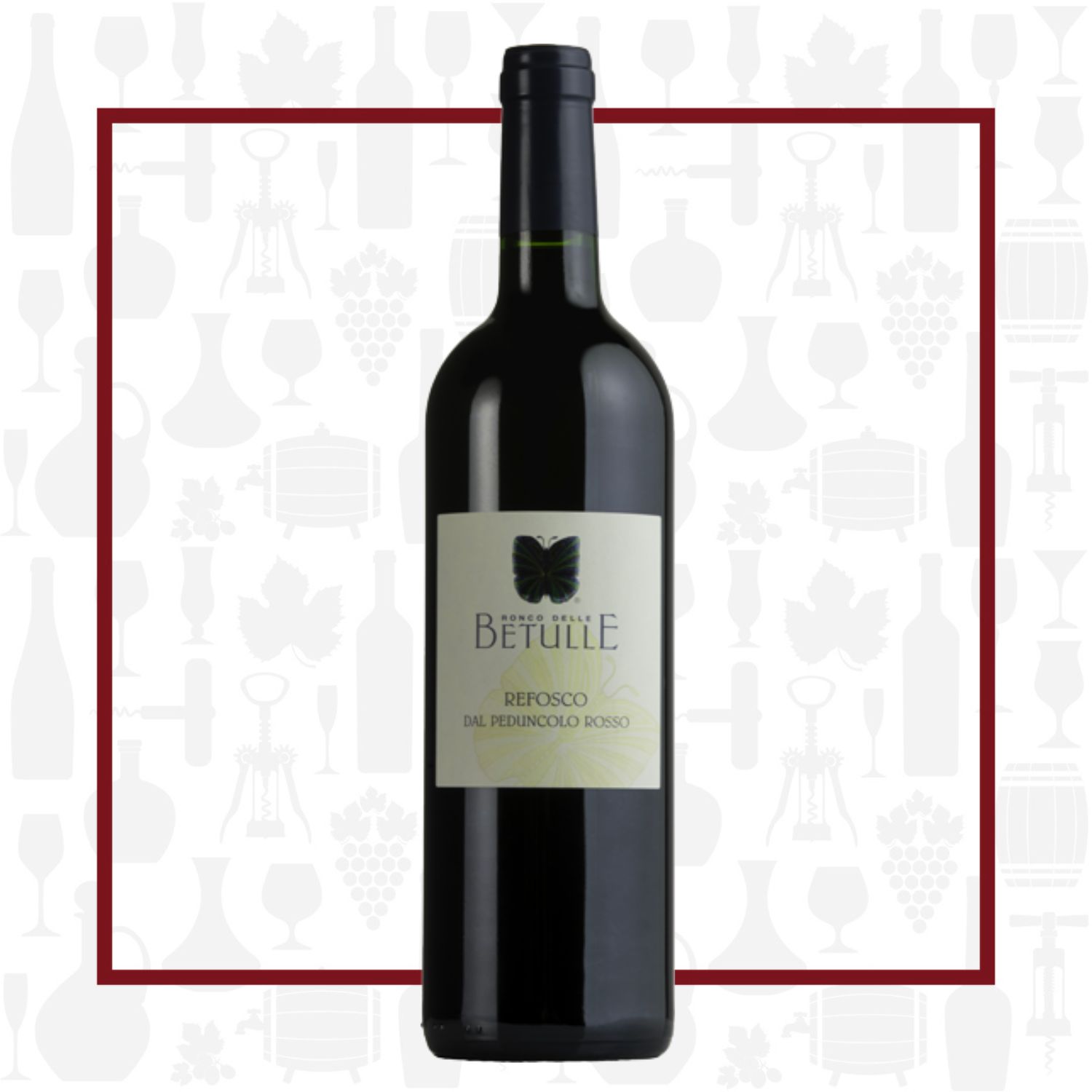Region
Ronco delle Betulle nestles in the hilly eastern part of Friuli in a sub zone called Rosazzo, an estate of approximately 17 hectares, of which 10 are under vine. The hills of Rosazzo benefit from a special microclimate set by several geographical factors: its closeness to the sea, its altitude and the presence of elevated parts. The nearby sea (which is approximately 30 km away) and the vicinity of the hills of Salta Caterina mitigate the climate; it is more breezy,sunny and less rainy here than in surrounding areas.
Vineyard
The vines are planted 60 quintals per hectare using a unilateral guyot trellising system. Ronco delle Betulle benefits from mixed soil made of marl, calcareous clay, sandstone and calcified sand. This soil, referred to as “Ponca”, originated approximately 50 million years ago. It is rich in mineral salts and other nutrients that yield high quality grapes, and hence fine wines. The marl/clay soil in the hills result in an excellent full-bodied Refosco which, when aged properly, takes on a pleasantly bitter flavour and an ample tarry bouquet.
Winemaking
Grapes are left to hang late into the season, as the varietal can ripen unevenly. Hand-harvesting and selection is key. The grapes are crushed into open top fermenters, macerating on the skins for 14 days, with regular manual punchdowns, After fermentation using indigenous yeast is complete, the wine is transferred into a combination of large, neutral oak tonneaux and new French oak barriques for 14-18 months of aging, before being bottled unfined and unfiltered.
Varieties
The Refosco dal Peduncolo Rosso is a red grape variety that owes its peculiar name to the red color of the stems. Native to Friuli Venezia Giulia, it belongs to the large family of the Refoscos and is cultivated mainly in Friuli, where it produces the best wines. Recently, it has been introduced in a few Veneto DOC wines. It is late-ripening and is known for producing wines that are full-bodied with high levels of acidity, a slightly herbaceous nose and tannins.
Tasting Notes
Ripe and expressive on the nose, with aromas of blackberry, plum kirsch, bramble and cedar. The palate is full and extracted, but the acids are prevalent and there is a good core of grippy tannins. Black fruit and mocha flavours, with wilder notes of garrigue and underbrush. This is a structured wine – give it some air before serving, at cellar temperature, with marinated hanger steak, cured Prosciutto di San Daniele or hearty lamb stew.

 info@buyersandcellars.ca
www.buyersandcellars.ca
info@buyersandcellars.ca
www.buyersandcellars.ca